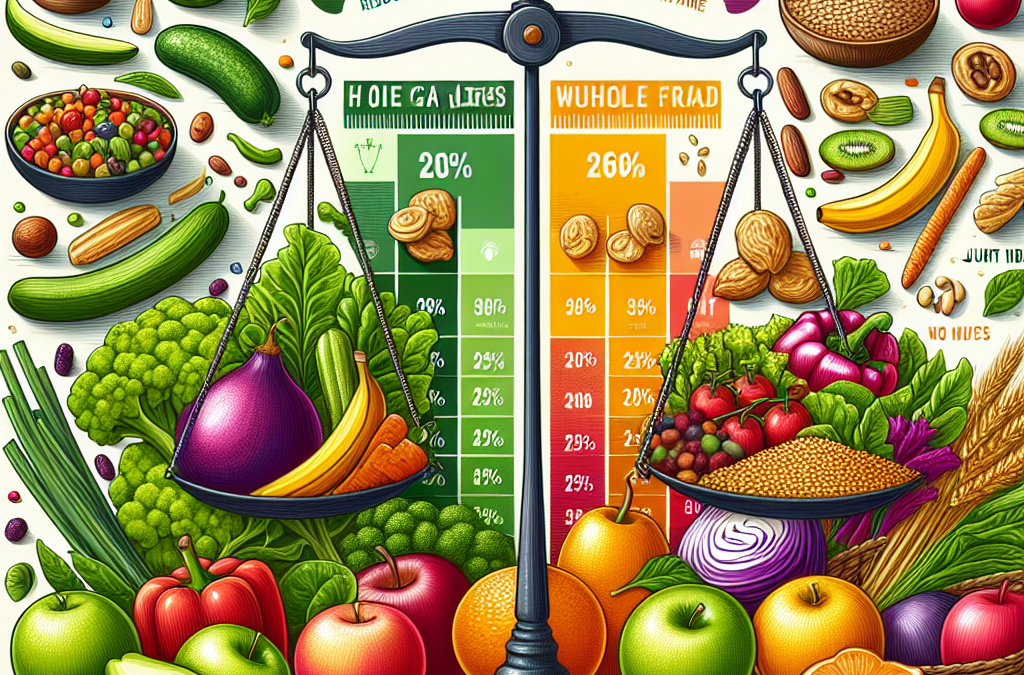Understanding Plant-Based Whole Foods
What Are They?
When I first dove into the world of plant-based eating, I was shocked to learn just how diverse and vibrant whole foods can be. Essentially, plant-based whole foods are foods that come from plants and are minimally processed. Think fruits, vegetables, whole grains, legumes, nuts, and seeds. Nothing added, nothing taken away! It’s all about eating foods that are as close to their natural state as possible.
The beauty of these foods is that they not only fill you up without packing on the calories but they also flood your body with nutrients. Vitamins, minerals, antioxidants—you name it! Each whole food serves a purpose and contributes to better health and well-being.
Embracing plant-based whole foods means saying goodbye to processed foods and artificial ingredients. Yes, it can be tough, but starting with small shifts in your diet makes the transition more manageable than you’d think. I started with swapping out snacks, and before long, my entire grocery list was bursting with color!
Benefits of a Plant-Based Diet for Weight Loss
Nutrition Over Caloric Restriction
One of the most liberating aspects of adopting a plant-based diet for weight loss is the focus on nutrition rather than just calories. With whole foods, I can enjoy a vast quantity, yet I still manage my weight effectively. These foods are naturally lower in calories and higher in fiber, which keeps me full without the fatigue of caloric deprivation.
In my experience, swapping processed snacks for whole foods like nuts, fruits, and veggies not only curbs my cravings but also provides sustained energy throughout the day. Who wouldn’t be thrilled about feeling full and energized at the same time?
I’ve realized that when I’m eating nutrient-rich foods, I’m not just losing weight; I’m promoting overall health, reducing the risk of chronic diseases, and even improving my mood. It’s a win-win.
Meal Planning with Whole Foods
Setting Up a Healthy Menu
Let me tell you—planning meals is a game-changer! I used to throw random stuff together and end up eating out more than I’d like to admit. Now, I sit down once a week to draft out what I’ll eat. I include plenty of whole foods every day, ensuring my meals are colorful and varied.
A sample day might look like this: oatmeal topped with berries for breakfast, a quinoa salad loaded with veggies for lunch, and a hearty vegetable stew for dinner. Not only does this structure help me eat better, but it also saves me time and stress during the week.
Plus, meal prep allows me to use leftovers creatively! A little creativity does wonders—old veggies can easily be blended into a soup or tossed in an omelet. Don’t be afraid to mix it up!
Snacking Smart with Plant-Based Options
Healthy Snack Ideas
Snacking can often derail progress, but when you opt for plant-based options, it feels more like a treat than a cheat! My go-to snacks are simple. I love hummus paired with crunchy veggies, or a handful of mixed nuts for that satisfying crunch.
Get an Amazing Discount on Best Organic SuperFood Product!
Fruits like apples or bananas are nature’s candy, and they satisfy my sweet tooth without guilt. Smoothies can also be a fantastic snack; just blend up some leafy greens, fruits, and a nut butter for a sweet, creamy pick-me-up.
And here’s a pro tip: always keep your snacks prepped and accessible. When healthy options are easy to grab, I’m less likely to reach for the temptation of junk food. Out of sight, out of mind, right?
Overcoming Challenges on a Plant-Based Diet
Staying Motivated
Let’s keep it real; transitioning to a whole foods plant-based diet can be tough. I hit my share of roadblocks, from cravings to social situations where a salad seemed to be the only option. But here’s the thing: motivation is key! I remind myself why I started this journey—better health and a happier me.
Finding a support system, whether that’s friends or online communities, can help a ton. Sharing recipes, tips, and occasional struggles has made the journey more enjoyable. It’s comforting to know I’m not alone in this.
Lastly, be kind to yourself. Progress takes time, and it’s okay to slip up sometimes. As long as I keep going forward, I’m in the right direction!
Frequently Asked Questions
1. Can I still lose weight if I eat a lot of fruits and vegetables?
Absolutely! Plant-based whole foods are generally low in calories and high in fiber, meaning you can eat larger portions while still maintaining a calorie deficit to promote weight loss.
2. Is a plant-based diet expensive?
Not necessarily. While some specialty items can be pricey, whole, unprocessed foods like beans, grains, and seasonal vegetables are often budget-friendly. Planning and buying in bulk can save you money.
3. How do I get enough protein on a plant-based diet?
There are plenty of plant-based protein sources! Legumes, tofu, tempeh, nuts, seeds, and whole grains are excellent options. With a varied diet, you can easily meet your protein needs.
4. What’s the best way to avoid cravings?
Staying full with satisfying whole foods can help stave off cravings. Snacking smart and planning meals allows you to manage hunger effectively. Staying hydrated can also curb cravings.
5. Can I still enjoy my favorite foods while on this diet?
Definitely! With a little creativity, you can make plant-based versions of your favorites. From veggie burgers to dairy-free desserts, there are endless possibilities that can satisfy your cravings.





